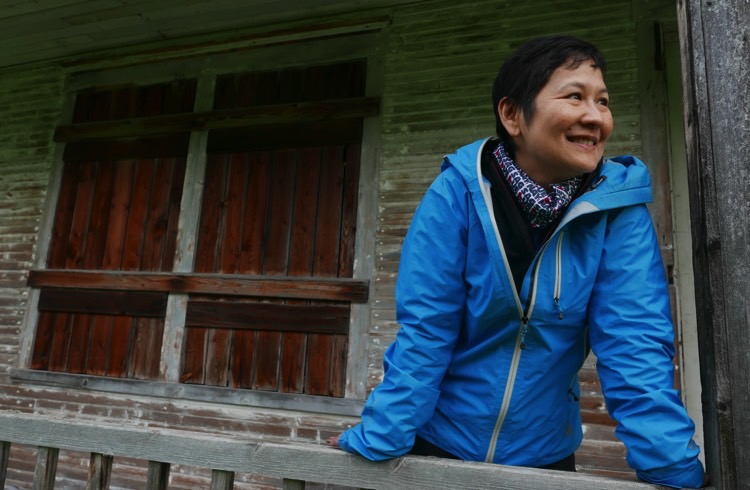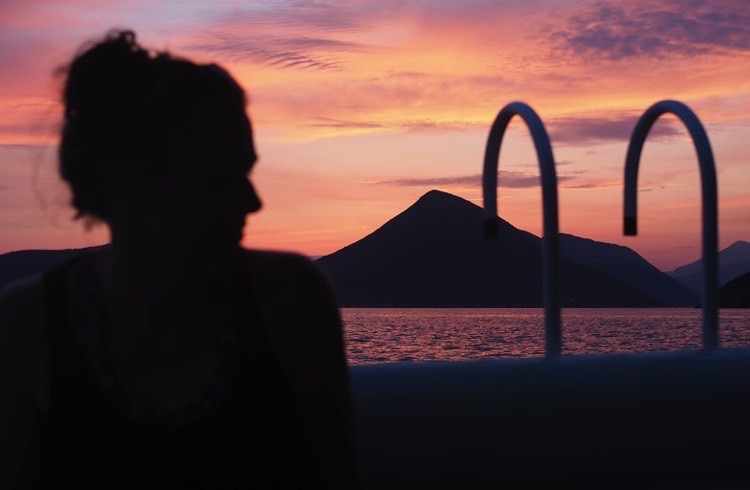What really grabs a Nat Geo editor's attention? Our Travel Writing Scholarship Judge, Norie Quintos, shares her experience at Nat Geo Travel and her tips on how to get noticed.
 Photo © Norie Quintos
Photo © Norie Quintos
What came first, your love of travel or your love of writing?
My first trip was a transatlantic flight from New York to Manila when I was six months old on the iconic Pan Am. By the age of two-and-a-half, I’d made that trip three times. It was the start of a love affair with cultures, languages, and travel. The writing came a little later, in first grade.
How did you get started in the travel writing industry?
In college, I was an African Studies major and was the editor of the yearbook. My original grand plan was to work as a diplomat in the State Department or the United Nations.
My first job was as a newsletter editor of a trade publication in Washington, D.C., focused on development and aid.
But I eventually decided I wanted to work for a travel magazine, a glamorous calling then; it was the Golden Age of magazines. I quit my job and got myself an unpaid internship at Caribbean Travel and Life magazine; a few months later, I’d gotten myself hired as an editorial assistant. I built the first part of my career covering the Caribbean as an editor and writer. It was the first of several “best jobs in the world.”
After that, I covered travel as a reporter and editor at the weekly news magazine U.S. News and World Report, which led to an editor job at National Geographic Traveler magazine.
What’s the best part about your job?
I have had a front-row seat to the cataclysmic changes wrought by digital technology. It’s been quite the roller coaster and I’m lucky to have been able to adapt and reinvent myself for a new journalistic landscape.
The old curated gateways of content have given way to everyone doing content, but the differentiator remains quality and editorial rigor.
I bring that experience and expertise to my role as a travel communicator, working with clients to help surface stories and tell stories better. And my role as an editor-at-large means I still get to contribute stories and ideas to a trusted and iconic brand I have been associated with for many years.
Was there an assignment in your career that was particularly memorable?
I was on assignment to write the cover story for Nat Geo Traveler about Banff, Alberta. My reporting time was short and I had a long list of things to do and see, and people to talk to.
On the list was to see a bear, preferably a grizzly. I felt I needed it for the story half-written in my head. But try as I might, I didn’t get to see one while I was there. (Wild animals are funny that way.)
When I got down to writing, I kept thinking how great it would have been to see the bear. I kept struggling with the piece until it dawned on me that not finding was the central metaphor for the story. It actually made for a better story.
The lesson: In life and in writing, don’t try to force it; let the story unfold.
How has travel writing enabled you to connect with locals and their cultures?
It gives me a reason to enter worlds and cultures different from mine and to ask a lot of probing questions.
And writing is really an exercise in clarifying the thinking process, so it also forces me to dig deeper and think – not just accept the standard explanations for why things are.
At the superficial end, I’ve been able to try a lot of different foods (most of them tasty, by the way) and at the other end, I’ve made some lifelong friends in the remotest corners of the world.
What type of stories interest you the most?
When it comes to stories I read, I’m a generalist; I read all sorts of stories, the travel category is just one of them, and it’s not even the biggest.
I love memoirs and historical nonfiction. Two of my favorite reads are Eric Larson’s In the Garden of Beasts, and Candice Millard’s Destiny of the Republic, both true tales that read like fiction.
As for what I like to write, I’m fascinated by stories of journeys of transformation, where metamorphosis is the subtext of a travel yarn.
What trends do you see developing in travel writing?
The trends have to do with how content is being distributed and how busy people are digesting it.
Shorter, fast-paced, and voiced with attitude. If that’s not the way you write, please don’t force it.
I also see a counter-trend of solidly reported, authoritatively voiced long-form reads.
How can aspiring travel writers take advantage of these trends?
I say forget the trends – except the one that says every writer needs to be their own marketer – and follow your passions.
However, to make a living, it may be necessary to write for a variety of outlets in a variety of voices.
How should travel writers get noticed by publishers?
Unfortunately, toiling in the attic and waiting to be discovered never worked for anyone.
Writers have to market themselves, which often goes against the grain for certain creatives, so it takes special effort.
An online presence is a must. Have a good website and a relevant social media feed. Attend travel conferences both for idea generation and networking opportunities.
Pitch liberally and write prolifically (but maintain quality).
What the common mistakes you see aspiring travel writers make?
The biggest mistake I see inexperienced writers make is to organize their pieces chronologically and linearly. It’s boring. Break it up. Surprise not just with words but with structure.
Another common mistake: using too many adjectives. Don’t say the view is “beautiful.” Describe its beauty.
What separates good travel writing from great travel writing?
I look for great yarns that go beyond the place into the realm of the universal. In other words, tell me a story that's not just about you in one spot, but all of us, everywhere.
Related articles
Simple and flexible travel insurance
You can buy at home or while traveling, and claim online from anywhere in the world. With 150+ adventure activities covered and 24/7 emergency assistance.
Get a quote


No Comments